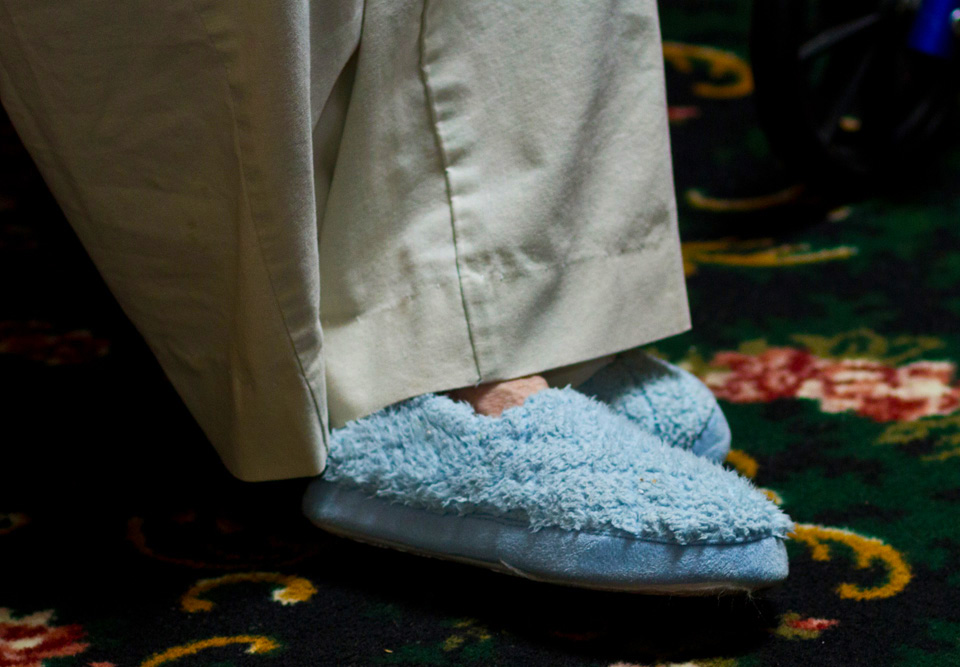Much attention is paid to fall prevention in seniors; falls are the most common reason for the elderly end up in hospital. Nursing homes and home health care workers are trained in many ways to prevent falls but since our feet are the base of standing, walking and making transfers, we should pay closer attention to them.
Too often we see elderly people shuffling along in slippers or other improper footwear or even socks or flip flops. Poor traction, poor support and poor fit can cause a host of troubles including tripping, slipping, pronation and other foot problems. If your feet hurt, it’s pretty hard to stay active.
Foot problems can also be a sign of serious medical conditions such as diabetes and arthritis, so it’s important to check feet regularly for cuts, blisters or ingrown toenails. If you need help, ask family or a visiting health care worker. Talk to your doctor about your feet at regular check ups.
Tips for Healthy Feet
- Put your feet up when sitting to help circulation – a gentle massage help as well
- If you cross your legs when sitting, uncross and switch sides often
- Keep feet clean and dry, especially between toes
- Don’t buy tight shoes
- Use a talc free foot powder to prevent fungus infections
- Use a pumice on corn or callus, not a razor
- Make sure shoes are soft and flexible but soles are sturdy
- Low heels are safer and less damaging
- Try shoes on before buying and at the end of the day when feet are their largest
- Don’t buy too-tight shoes and hope they will stretch
- Look for shoes that are easy for the elderly to put on, with velcro instead of laces
Watch out for swollen feet, bunions, warts, and cuts that don’t heal. These can all lead to more serious and sometimes painful health problems if left untreated.






Add Your Voice
0 Comments
Join the Discussion